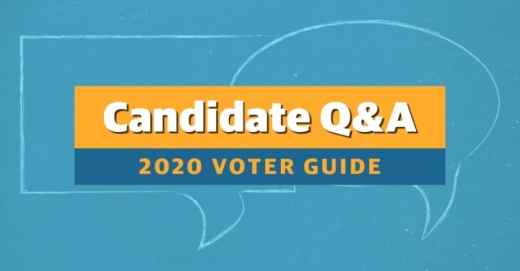HOUSTON
Texas House District 3

Cecil Bell Jr.*
R
Occupation: State House Representative, District 3
Experience: Serving as the chairman of the Greater Magnolia Economic Development Partnership, chairman of the Montgomery County Precinct 5 Training Facility
Contact: www.cecilbelljr.com
If elected, what is the first piece of legislation you plan to file?
CBJ: I will continue to fight for the citizens of Waller and Montgomery County everyday. I will work endlessly on pushing our government to fully reopen Texas, push for criminal justice reform, lower taxes, give support to our brave police officers and continue fighting against all forms of abuse.
What are the biggest challenges District 3 is facing, and how do you plan to address those challenges?
CBJ: Businesses need to be able to fully operate again; however, the government still has too much power over our great nation. I am pledging to support a limited regulatory environment for Texas businesses and to staunchly defend the constitutional rights of our fellow Texans.
What improvements do you believe should be made to public education in Texas?
CBJ: Some improvements I believe we should be focusing on are establishing college degree plans for all Texas Military Department troops including the Texas Army National Guard, the Texas Air National Guard and the Texas State Guard are important. As well as adequate funding to make the Teacher Retirement System [of Texas] monetarily sound and providing checks to retired teachers.

Martin Shupp
D
Occupation: Airline pilot
Experience: I was the elect union [representative] for the Airline Pilots Association for four years. I was the president of the Homeowners Association back in 1994 [or] 1995 ... in Las Vegas, Nevada ... for two or three years. I also have done grievance work regarding contract compliance with companies.
Contact: www.facebook.com/shupp4tx3
If elected, what is the first piece of legislation you plan to file?
MS: My biggest worry right now for the Montgomery, Magnolia District 3 area is this unbridled building issue that's going on. I see a lot of builders, filling in what would normally be an actual drainage area. It seems that they're changing the natural landscape, to the point where I worry about flooding that didn't exist in some neighborhoods, that would exist with this new building, and my fear is that if we don't curb some of the building and some of the water areas of our county, then we'll have flooding in areas that never flooded before. I'm a proponent of better regulating ... developers issues. I see developers just wanting to clear cut things and build houses and the regard for the next 30 or 40 years bothers me. The next set of legislation I'd like to work on is making sure that our natural waterways are clean and that we have a mechanism to ensure that drinking water in our neighborhoods doesn't get contaminated with either petrochemical issues or any other kinds of man-made pollution.
What are the biggest challenges District 3 is facing, and how do you plan to address those challenges?
MS: It's overbuilding. As I stated earlier, it's one of those things where it's great that we have people moving here, it's great but we're building more homes, than I think that biggest challenge is to make sure we do it responsibly for the entire community.
What improvements do you believe should be made to public education in Texas?
MS: Obviously, we're dealing with this pandemic, so that's a question in and of itself. Keeping our kids and teachers safe is definitely a big part of making sure that we have a good public school system, but I'd also like to see teachers make more money and young people in our community being encouraged to go into the teaching profession, better benefits packages for teachers. And a lot of people fear that that would drive the community taxes is up, but I also believe that making an investment in the future of Texas includes maybe paying a little bit more on the front end, so that the older people in this community who have kids, ... they'll know that the grandkids will do just fine with better education. I'm a big proponent of paying teachers more money.





